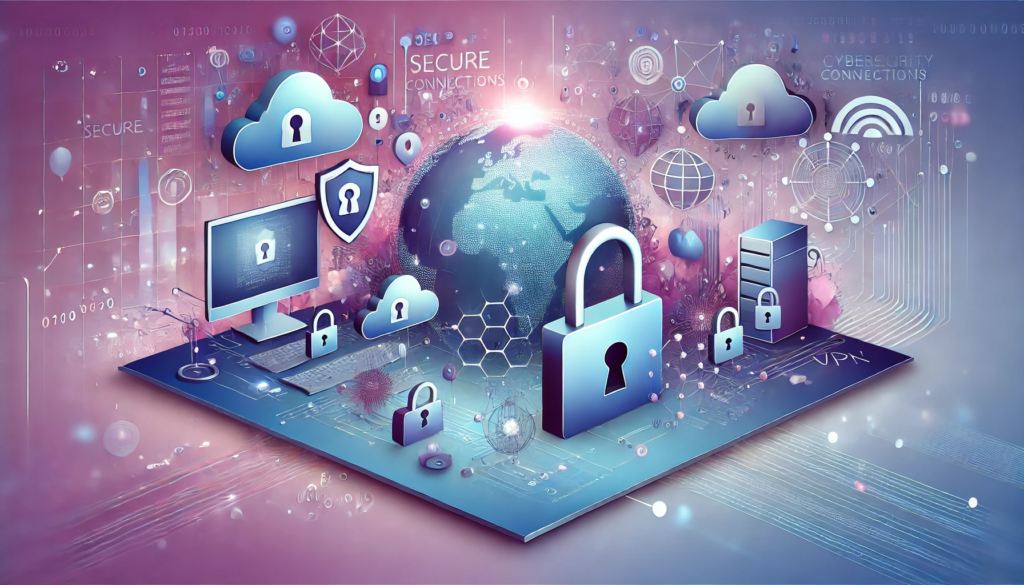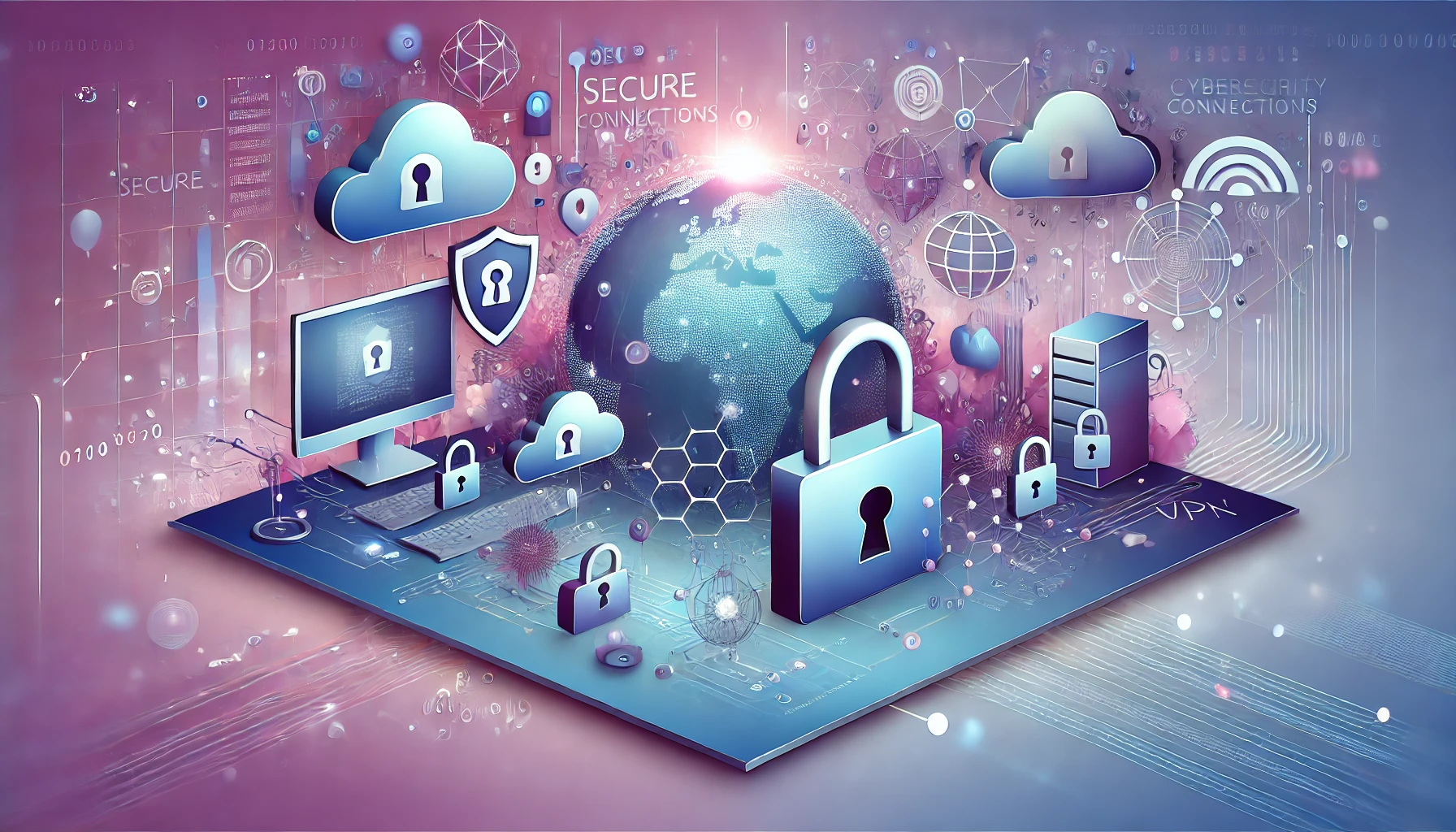Cybersecurity Measures: Boost Your Security Against HTTPS Phishing with VPNs
In an increasingly digital age, businesses must increasingly invest in cybersecurity measures to protect themselves from cyber attacks. According to data from the MetLife & US Chamber of Commerce Small Business Index, cybersecurity attacks top the list of threats that small businesses are most concerned about at 60%, followed by supply chain disruptions (58%) and another pandemic (54%).
At the same time, most small businesses say they are prepared to respond to various threats and disasters. 73% of small businesses say they are prepared to handle cybersecurity threats, while roughly half of small businesses say they have invested in staff training to boost their business’ cybersecurity measures.
However, whether a small business or a larger corporate entity, a variety of factors are at play when it comes to ensuring cybersecurity for your business. Cybersecurity staff training is certainly important and plays a huge role, but there are other measures you can rely on to help boost business cybersecurity. This includes using a virtual private network (VPN). VPNs are popularly used for private purposes by individuals and households, but businesses can also stand to benefit from the technology.
In particular, using VPNs can help strengthen a business’ cybersecurity strategy against HTTPS phishing cyberattacks. In this post, we’ll take a closer look at what HTTPS phishing is and how using a VPN can help mitigate the risk of these cyberattacks:
What is HTTPS phishing?
Among various types of cybercrimes, phishing targets individuals or groups by posing as a legitimate person, entity, or institution to lure victims into providing sensitive or private information. Phishing victims can give out data such as personally identifiable information, banking and credit card details, and passwords and login details unknowingly. This is typically done using fake websites or applications that look similar or mimic the look of official and legitimate sites.
A step above ordinary phishing, NordVPN defines HTTPS phishing as a type of cyberattack where attackers impersonate trusted websites that use the HTTPS protocol. Beyond perfectly capturing the look and feel of legitimate websites, these fraudulent sites have the padlock icon indicating a secure HTTPS connection to further convince victims to send sensitive information. One of the most common HTTPS phishing examples today includes replicating a bank’s online login page using HTTPS, which can result in unsuspecting users entering their credentials and suffering significant financial loss.
Some of the best ways to protect yourself and your employees against HTTPS phishing attacks is by implementing cybersecurity practices. This includes training employees to always verify a site’s URL, as phishing sites tend to use URLs that are similar but not identical. This may include a subtle typo, an extra letter, or a dash to seem legitimate. Another crucial tip to avoid HTTPS phishing is to install a VPN. Below, we’ll look at some of the ways VPNs can protect your business against HTTPS phishing:

Secure and encrypted Internet connection for Cybersecurity Measures
One of the key advantages of using a VPN is that it helps encrypt all Internet traffic between a user’s device and the VPN server. This makes it difficult for hackers to intercept or manipulate data and ensures that even if employees accidentally visit a phishing site, their data remains secure and less vulnerable to theft or breaches.
According to Google’s network encryption data, the rate of network encryption among all web traffic today stands at 95%. This is a significant improvement compared to data from 2013, when less than half of all web traffic was encrypted. As mentioned, web encryption makes it harder for attackers to steal data. However, the same encryption can also be used by cybercriminals to protect themselves, making them harder to catch or block. According to a report from Zscaler, 80% of cyber-attacks nowadays use encrypted channels, making cybercrime like phishing harder to detect or punish. As such, it’s still important for businesses to monitor network traffic, even when using a VPN.
Remote access security
Another advantage of using a VPN is that it helps provide employees with secure remote access to internal resources. Using a VPN, employees can safely connect to your company network in a way that is easier to manage and identify, while reducing the risk of exposure to phishing sites when accessing sensitive information.
This Forbes article on remote access security highlights that the number of people working in the office full time dropped to 42% in the second quarter of 2023. As remote work remains part of our new norm and is an increasingly attractive job description point for employees, it’s important for your business’ cybersecurity team to constantly monitor and protect the company network, especially the data and processes carried out remotely. Businesses can also benefit by implementing security measures to prevent or reduce the impact of future breaches via remote access using authentication, firewall, and password management.
Cybersecurity Measures – IP address masking
Finally, one of the key purposes of VPN is to mask a user’s IP address, making them harder to trace. This makes it significantly harder for potential attackers and phishing sites to target specific users or devices within your business, while providing an additional layer of anonymity to protect your employees.
Still, this doesn’t mean that VPNs will make your business wholly immune to HTTPS phishing risk. Employee cybersecurity training and awareness plays a huge role in ensuring VPN does a good job. Based on findings published in the International Journal of Human-Computer Studies, risky email behaviors such as clicking on random or unknown links and downloading documents from unknown senders can result in an employee’s device being used as an entry point to jeopardize a company’s entire computer system. As such, while certain technologies, like virtual private networks, can help safeguard your business against attacks like HTTPS phishing, it’s also important that employees are trained to be wary of them.
If you found this post insightful, you may like our previous post on “HR’s Vital Role in Data Security”, where we emphasize the importance of drafting and enforcing data privacy policies within your business. These help outline the dos and don’ts for employees when it comes to data handling and sharing and are another step forward against cybercrime like HTTPS phishing.









